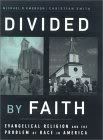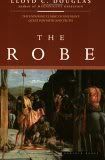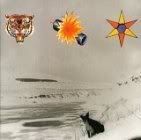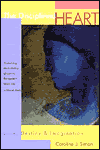I am told God loves me — and yet the reality of darkness & coldness & emptiness is so great that nothing touches my soul. --Mother Teresa
Time Magazine has an article about Mother Teresa and the new book of her letters to her spiritual confessors over the years, Come Be My Light. Many of her communications reveal a deeply felt absence of God, and her persistence in her faith and work in light of it is all the more astounding.
Most (all, I suspect) of us experience what Richard Foster calls a "Sahara of the Soul" at one point or another, although gratefully most of them seem to last for less than the 50+ years of Mother Teresa's. I find these letters so encouraging, as I continue to grapple with my own doubts and the inevitable times when I feel like I'm talking to the air. A similar sentiment was expressed by many in the article. Rev. James Martin says of the book, "It would be a ministry to people who had experienced some doubt, some absence of God in their lives. And you know who that is? Everybody. Atheists, doubters, seekers, believers, everyone." (See Also: Brian McLaren)
On the other side is Christopher Hitchens, an outspoken atheist, who reads the letters as additional evidence of the profound idiocy of faith: "She was no more exempt from the realization that religion is a human fabrication than any other person, and that her attempted cure was more and more professions of faith could only have deepened the pit that she had dug for herself." (See Also: Sam Harris) There is also the psychological analysis, that "she punished herself with a crippling failure to counterbalance her great successes."
The overwhelming lack of feeling of closeness with Christ in Mother Teresa's life suggests that perhaps we should re-examine what faith is. Most know that it's not just a feeling, but how do we live our lives when the feeling isn't there? And what constitutes sufficient feeling? Rev. Brian Kolodiejchuk, who put the book together, "thinks the book may act as an antidote to a cultural problem. 'The tendency in our spiritual life but also in our more general attitude toward love is that our feelings are all that is going on,' he says. 'And so to us the totality of love is what we feel. But to really love someone requires commitment, fidelity and vulnerability. Mother Teresa wasn't 'feeling' Christ's love, and she could have shut down. But she was up at 4:30 every morning for Jesus, and still writing to him, 'Your happiness is all I want.' That's a powerful example even if you are not talking in exclusively religious terms.'"
Personally, I'm grateful for the example and look forward to reading the book. As often as we talk about doubt, it is rare to have someone with such great spiritual maturity or in leadership be so open about their own struggles, except in a very general way. (See Also: Kamp Krusty) I should also mention, though, that Mother Teresa herself wanted these correspondences destroyed, but her wishes were overruled by the church. That decision is a whole other question, and while I'm grateful that they are being made available, I don't know what I think of it.








![clip_image002[2]](http://www.greglaughery.com/jasie/MotherTeresa_B90E/clip_image0022.jpg)

 I returned home today from Lausanne with the best intentions in the world to finish writing up the first chapter of
I returned home today from Lausanne with the best intentions in the world to finish writing up the first chapter of 










